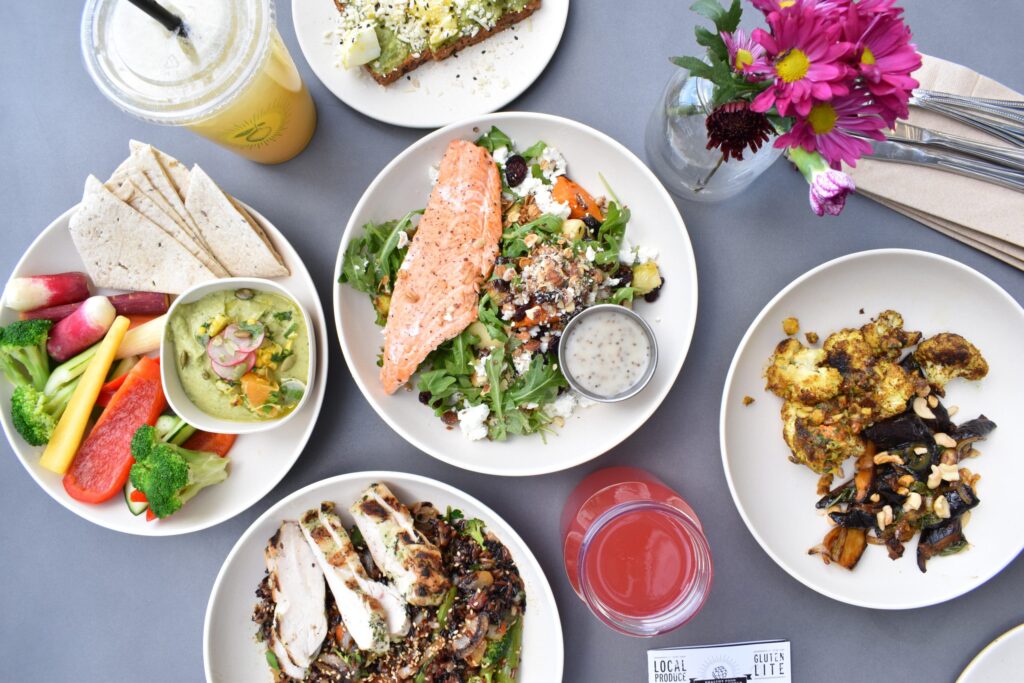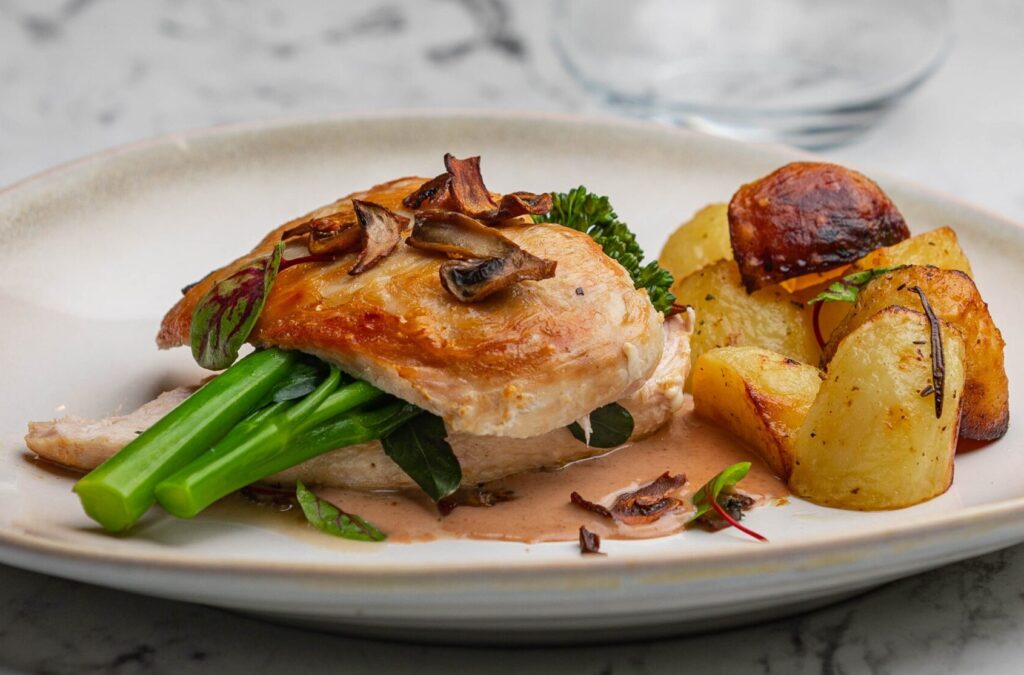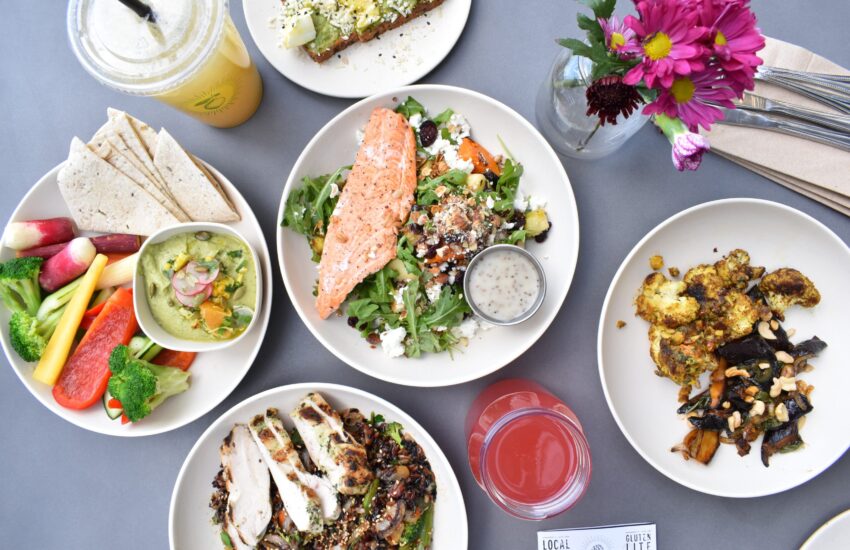Eating a balanced meal that includes adequate protein is crucial after a workout to support muscle recovery and growth. Natural protein sources offer a range of essential nutrients that contribute to overall health. In this detailed guide, we’ll explore various natural protein sources, their nutritional profiles, and how to incorporate them into post-workout meals for optimal recovery. Mohit Tandon Chicago suggested Natural Protein Sources after Workout.

Understanding the Importance of Post-Workout Nutrition
After a workout, especially one that involves resistance training or intense cardiovascular exercise, the body undergoes several physiological changes. These include muscle protein breakdown and glycogen depletion. Consuming the right nutrients post-workout helps to:
- Replenish Glycogen Stores: Accordingly Mohit Tandon Chicago, Carbohydrates help replenish the glycogen stores in muscles, providing a quick source of energy for future workouts.
- Promote Muscle Protein Synthesis: Protein intake stimulates muscle protein synthesis, helping to repair and build muscle tissue.
- Reduce Muscle Protein Breakdown: Amino acids from protein sources can help reduce muscle protein breakdown, which can occur during intense exercise.
- Hydration and Electrolyte Balance: Rehydrating with fluids containing electrolytes is crucial, especially if the workout involved sweating.
Natural Protein Sources for Post-Workout Nutrition
1. Lean Meats
1.1 Chicken Breast
- Protein Content: Chicken breast is a lean source of protein, providing around 31 grams of protein per 100 grams.
- Other Nutrients: It also contains essential vitamins and minerals such as B vitamins, phosphorus, and selenium.

1.2 Turkey
- Protein Content: Turkey is rich in protein, offering approximately 29 grams of protein per 100 grams.
- Additional Benefits: It contains nutrients like niacin, vitamin B6, and zinc.

1.3 Lean Beef
- Protein Content: Lean cuts of beef provide about 27 grams of protein per 100 grams.
- Nutrient Profile: Beef is a good source of iron, zinc, and B vitamins.
1.4 Pork Tenderloin
- Protein Content: Pork tenderloin provides around 23 grams of protein per 100 grams.
- Nutrient Content: It contains nutrients such as thiamine, riboflavin, and phosphorus.
2. Fish and Seafood
2.1 Salmon
- Protein Content: Salmon is a fatty fish that provides about 25 grams of protein per 100 grams.
- Omega-3 Fatty Acids: It is rich in omega-3 fatty acids, promoting heart health.
2.2 Tuna
- Protein Content: Tuna is a protein-dense fish, offering approximately 30 grams of protein per 100 grams.
- Omega-3s: Tuna also contains omega-3 fatty acids.
2.3 Shrimp
- Protein Content: Shrimp is a low-calorie protein source, providing around 24 grams of protein per 100 grams.
- Low in Fat: It is low in fat and a good source of selenium.
2.4 Cod
- Protein Content: Cod is a lean fish with approximately 18 grams of protein per 100 grams.
- Vitamins: It contains vitamins such as B12, niacin, and phosphorus.
3. Eggs and Dairy
3.1 Eggs
- Protein Content: Eggs are an excellent source of protein, with one large egg providing about 6 grams of protein.
- Complete Protein: Eggs contain all essential amino acids, making them a complete protein source.
3.2 Greek Yogurt
- Protein Content: Greek yogurt is high in protein, offering approximately 10 grams of protein per 100 grams.
- Probiotics: It also contains probiotics, beneficial for gut health.
3.3 Cottage Cheese
- Protein Content: Cottage cheese is rich in protein, providing around 11 grams of protein per 100 grams.
- Calcium: It is also a good source of calcium.
3.4 Milk
- Protein Content: Milk contains about 3.4 grams of protein per 100 grams.
- Calcium and Vitamin D: It is a good source of calcium and vitamin D.
4. Plant-Based Proteins
4.1 Lentils
- Protein Content: Lentils are a plant-based protein source, offering approximately 9 grams of protein per 100 grams.
- Fiber and Iron: They are also rich in fiber and iron.
4.2 Chickpeas
- Protein Content: Chickpeas provide around 8 grams of protein per 100 grams.
- Fiber and Micronutrients: They are a good source of fiber, folate, and manganese.
4.3 Quinoa
- Protein Content: Quinoa is a complete protein, providing approximately 8 grams of protein per cup (185 grams).
- Fiber and Nutrients: It is also rich in fiber, magnesium, and iron.
4.4 Tofu
- Protein Content: Tofu is a soy-based protein, offering about 8 grams of protein per 100 grams.
- Versatility: It is a versatile ingredient that can be used in various dishes.
5.1 Almonds
5. Nuts and Seeds
- Protein Content: Almonds provide around 21 grams of protein per 100 grams.
- Healthy Fats: They are also a good source of healthy fats.
5.2 Walnuts
- Protein Content: Walnuts offer approximately 15 grams of protein per 100 grams.
- Omega-3 Fatty Acids: They are high in omega-3 fatty acids.
5.3 Chia Seeds
- Protein Content: Chia seeds contain around 17 grams of protein per 100 grams.
- Omega-3s and Fiber: They are also rich in omega-3 fatty acids and fiber.
5.4 Pumpkin Seeds
- Protein Content: Pumpkin seeds provide about 19 grams of protein per 100 grams.
- Minerals: They are a good source of minerals such as zinc and magnesium.
Designing a Balanced Post-Workout Meal
1. Protein Timing
- Post-Workout Window: Consuming protein within the first 30 minutes to an hour after a workout can be beneficial for muscle protein synthesis.
- Spread Protein Intake: Distribute protein intake evenly throughout the day for sustained muscle recovery.
2. Carbohydrates for Glycogen Replenishment
- Include Carbohydrates: Pair protein with carbohydrates to replenish glycogen stores and provide energy.
- Complex Carbs: Opt for complex carbohydrates like whole grains, fruits, and vegetables.
3. Hydration
- Rehydration: Drink plenty of water to rehydrate the body after exercise.
- Electrolyte Balance: Consider sports drinks or coconut water to restore electrolyte balance, especially after intense or prolonged workouts.
4. Balanced Nutrient Intake
- Include Healthy Fats: Incorporate sources of healthy fats, such as avocados or olive oil, for a balanced meal.
- Micronutrients: Ensure the meal includes a variety of colorful fruits and vegetables for essential vitamins and minerals.
5. Sample Post-Workout Meal Ideas
5.1 Grilled Chicken Breast with Sweet Potato and Vegetables
- Protein Source: Grilled chicken breast.
- Carbohydrate Source: Sweet potato.
- Vegetables: Broccoli, bell peppers, and spinach.
- Healthy Fats: Olive oil drizzle.
5.2 Salmon and Quinoa Bowl
- Protein Source: Grilled or baked salmon.
- Carbohydrate Source: Quinoa.
- Vegetables: Mixed greens, cherry tomatoes, and cucumbers.
- Healthy Fats: Avocado slices.
5.3 Chickpea Salad
- Protein Source: Chickpeas.
- Carbohydrate Source: Quinoa or brown rice.
- Vegetables: Cucumber, cherry tomatoes, red onion, and mixed greens.
- Healthy Fats: Olive oil-based dressing.
5.4 Tofu Stir-Fry
- Protein Source: Tofu.
- Carbohydrate Source: Brown rice or noodles.
- Vegetables: Broccoli, bell peppers, carrots, and snap peas.
- Healthy Fats: Sesame oil.
Conclusion
Incorporating natural protein sources into post-workout meals is essential for supporting muscle recovery and overall health. Whether opting for lean meats, fish, eggs, plant-based proteins, or nuts and seeds, individuals can design balanced and nutrient-dense meals to meet their specific needs.
Lastly Remember that individual nutritional requirements vary, and factors such as the intensity and duration of the workout, overall health goals, and dietary preferences should be considered. Additionally, it’s crucial to stay hydrated, include a variety of nutrient-rich foods, and consult with healthcare or nutrition professionals for personalized advice.
By understanding the nutritional profiles of different protein sources and designing well-balanced post-workout meals, individuals can enhance their recovery, promote muscle growth, and contribute to their overall well-being.
